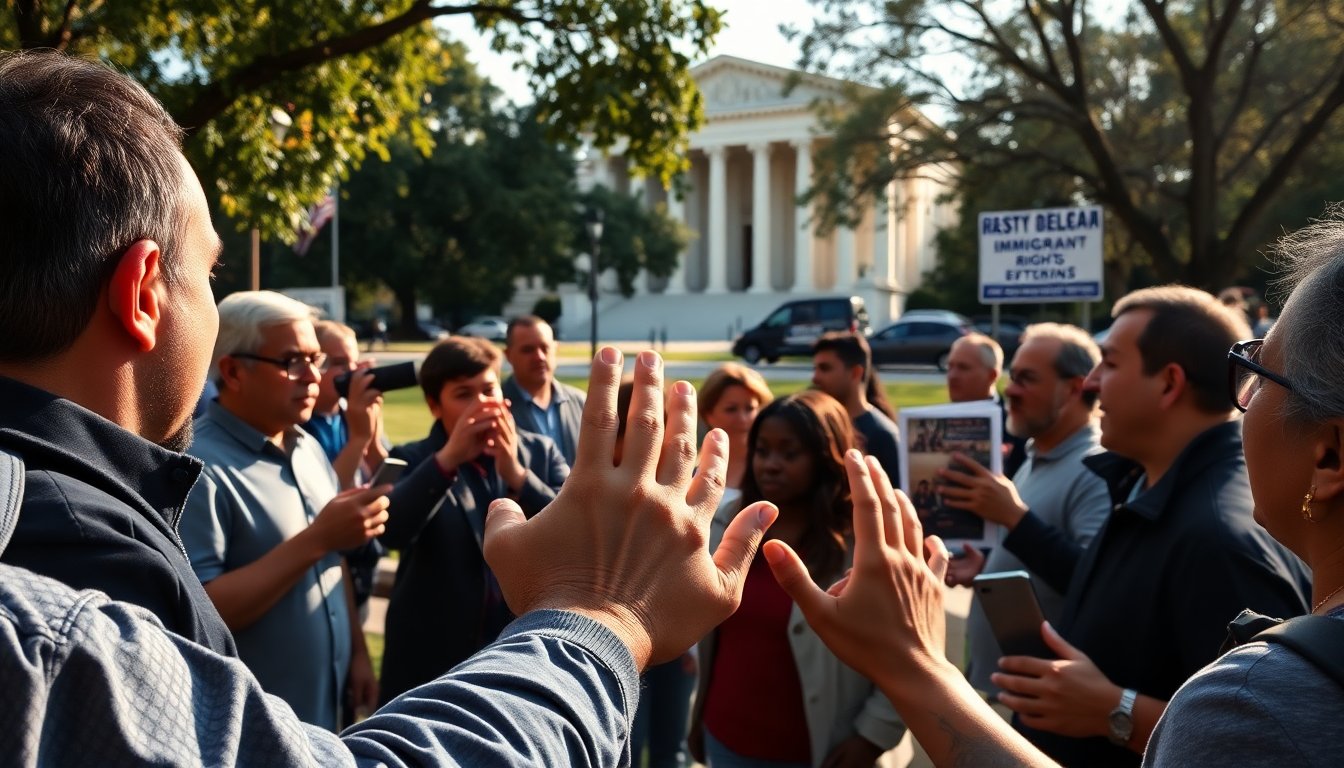Table of Contents
The facts
In a significant legal development, the Supreme Court has allowed former President Donald Trump to move forward with plans to revoke the temporary protected status (TPS) for Venezuelans, at least temporarily. This ruling follows a federal judge’s decision from September 5, which stated that Secretary of Homeland Security Kristi L. Noem acted unlawfully by dismantling protections for Venezuelan and Haitian immigrants. This ongoing legal saga underscores the contentious nature of immigration policy in the United States and its implications for vulnerable communities.
Background of the temporary protected status
The temporary protected status (TPS) program was created to offer temporary refuge for individuals from countries facing significant turmoil or natural disasters. Venezuelans, enduring a political crisis and economic collapse, received TPS, allowing them to live and work in the United States without the risk of deportation. However, a change in administration has led to uncertainty regarding the future of TPS, raising concerns within immigrant communities.
Legal battles surrounding TPS revocation
A recent ruling by a federal judge highlighted the intricacies of immigration law. The judge found that Governor Noem’s efforts to terminate Temporary Protected Status (TPS) for Venezuelans violated established legal standards. This decision seeks to safeguard thousands of Venezuelan immigrants who depend on TPS for their safety and livelihoods. However, the Supreme Court’s choice to permit the revocation process to proceed indicates the broader political dynamics involved.
As the case progresses, its implications extend beyond the immediate concerns affecting Venezuelan immigrants. It raises essential questions regarding the executive branch’s authority in shaping immigration policy and the judiciary’s role in either supporting or contesting such decisions. Maintaining a balance of these powers is vital, particularly during periods of political uncertainty.
Community reactions and implications
The Venezuelan community and immigrant advocates have reacted with alarm and determination to the potential loss of Temporary Protected Status (TPS). Many fear that the revocation of TPS could lead to severe hardships for individuals who fled violence and persecution in Venezuela. Advocates emphasize the necessity of maintaining TPS, highlighting its importance not only for Venezuelans but also as a precedent for other immigrant groups facing similar challenges.
Advocacy organizations are mobilizing to contest the Supreme Court’s decision. They argue that revoking TPS undermines the safety net established to protect those escaping crisis situations. This ongoing legal struggle underscores the pressing need for comprehensive immigration reform to address the vulnerabilities experienced by millions of immigrants living in the United States.
Future of the temporary protected status program
The future of Temporary Protected Status (TPS) is currently uncertain. The recent Supreme Court ruling may provide only a brief pause for the Trump administration’s immigration policies. However, it highlights an ongoing dialogue about immigration’s direction in the United States. A comprehensive review of TPS criteria and the legal frameworks that govern it could result in fundamental shifts in how the U.S. addresses international crises.
As legal challenges unfold, the implications for Venezuelans and other affected immigrant communities remain precarious. The potential elimination of TPS could exacerbate anxiety and fear of deportation for many families. This situation underscores the urgent need for a humane immigration policy that acknowledges the struggles of individuals seeking asylum and the persistent crises in their home nations.
The facts
On [insert date], the Supreme Court permitted the Trump administration to move forward with the revocation of Temporary Protected Status (TPS) for Venezuelans. This decision follows a lower court ruling that opposed the administration’s action.
The implications
This legal battle highlights the intricate relationship between laws, policies, and the lives of individuals impacted by immigration issues. As the situation develops, it is crucial for advocates to push for an equitable immigration system that safeguards the rights of immigrants, especially those escaping challenging conditions.
What’s next
The outcome of this case may establish significant precedents for future immigration policies and the treatment of vulnerable groups. The ongoing discussions and rulings will likely influence immigration law in the United States for years ahead, affecting countless lives.


